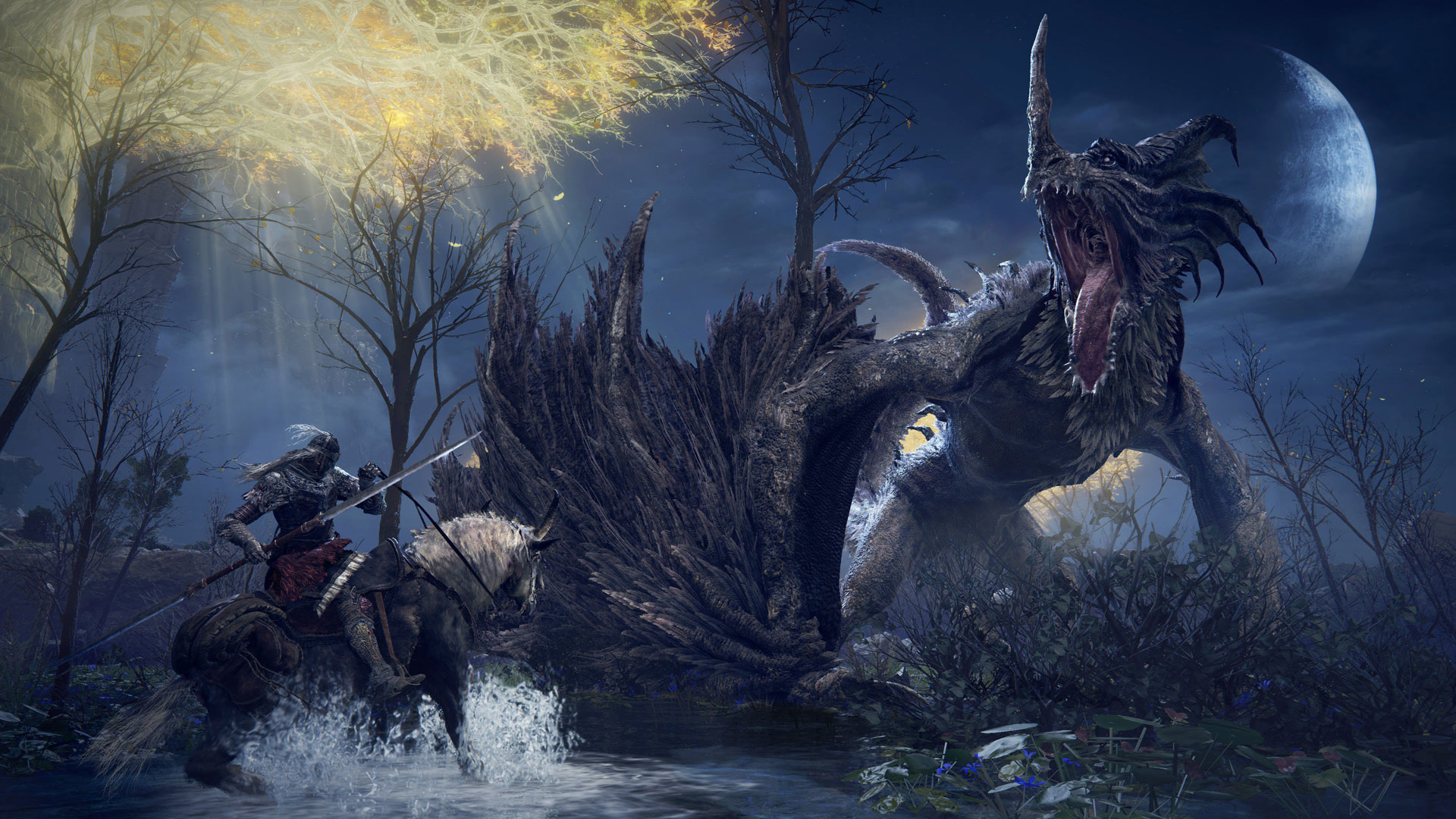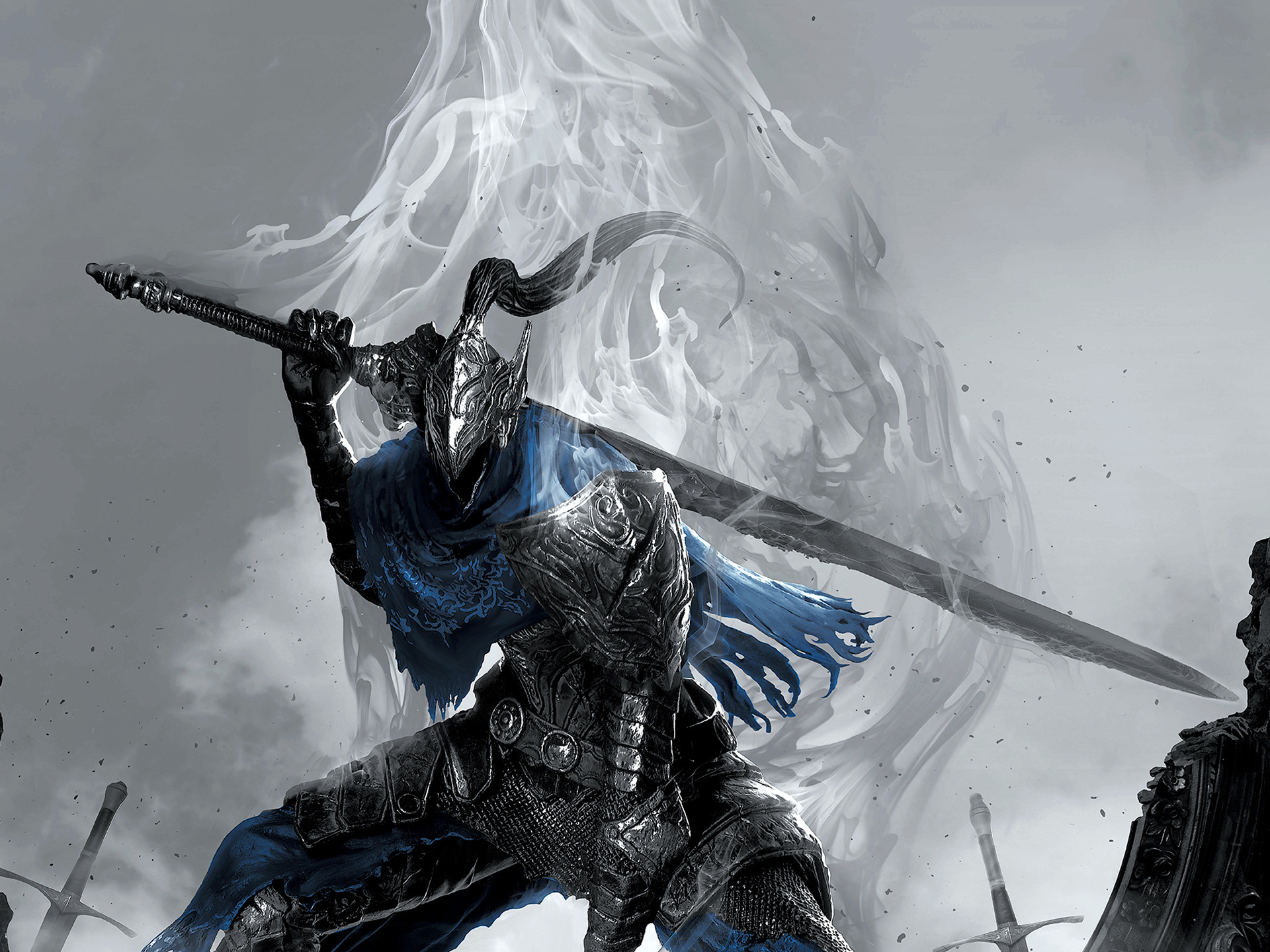
article
Elden Ring: It's all about the boss
The art of Elden Ring and Dark Souls games truly shines in boss and monster design.
Arjan Terpstra
16 Nov 2021 ⋅ 4 min read
High praise for Elden Ring, when a closed network test version of the game went live for a weekend in November, and many people finally could experience FromSoftware's long-awaited title first-hand. Throughout the weekend, it rained compliments on the open world structure, the allure of the tall glowing trees, and the first hints of deep fantasy lore in the game world. Surely it pays off to have Game of Thrones author George RR Martin on board as a writer: the Lands Between (the location of the game) and the existence of the 'Tarnished' already feel well-established, months before the actual release of the game.
Dark Souls
Elden Ring thus looks to be a true heir to the famed FromSoftware games that came before: Demon Souls, the Dark Souls games, and Bloodborne and Sekiro: Shadows die Twice. Helmed by studio director Hidetaka Miyazaki, these games were lauded as some of the best games of the past years. Games defined by their complex, intense combat that plays out in dark, haunted settings crammed with ghoulish characters.
Hard fights and deep lore, that is what it boils down to in any "Souls game," with the boss fight as the symbolic culmination of the two. And that makes total sense when you look into Miyazaki's design philosophy. On the one hand, he is a known tinkerer when it comes to the design of battle tactics—the range of attacks and defences a player has, combined with those of a boss or enemy. On the other, he will insist his designers add a layer of meaning to any boss. "One of the elements I want to bring to boss character design is contradiction," he said in a famous creator interview called Dark Souls Design Works. "Not just (make) fearful enemies but something more that can be sensed from each boss character."
Souls players will surely understand. As you size up the Dancer of the Boreal Valley, the infamous Soul of Cinder, or Artorias the Abysswalker, you are looking not at a fighting machine but at a personality, a creature defined by something. And this is intentional. Miyazaki again, in another interview, on Dark Souls III: "We have the Dancer of the Frigid Valley; she is definitely a formidable enemy, but at the same time players sense not only that it's scary, but [that] there's a sense of sadness."
Soul of Cinder
Souls players will surely understand. As you size up the Dancer of the Boreal Valley, the infamous Soul of Cinder, or Artorias the Abysswalker, you are looking not at a fighting machine but at a personality, a creature defined by something. And this is intentional. Miyazaki again, in another interview, on Dark Souls III: "We have the Dancer of the Frigid Valley; she is definitely a formidable enemy, but at the same time players sense not only that it's scary, but [that] there's a sense of sadness."
Dancer of the Boreal Valley from Dark Souls III, available as fine art print from this website. Visit our product page for details about pricing, sizes, and finishes.
For Elden Ring's bosses, this rings as true as for any Souls boss. The players in the closed network test lauded the enemies they encountered, not only for the sheer pleasure of fighting something that's difficult to beat, but also because of how suggestive these enemies look—suggestive of meaning, that is. Just have one look at the Pumpkin Head foe, or Margit the Fell Omen, and you know there's more going on than meets the eye. As any walkthrough will show you, FromSoftware boss designs are always more than just a guy in armour, and carry ideas that may or may not be obvious when you first come across them.
Appetite
In fact, some ideas behind the designs may never fully come to light. Miyazaki in the aforementioned Design Works interview confessed to having an omnivorous appetite when it comes to sourcing other media for inspiration. Berserk and JoJo's Bizarre Adventure manga series are mentioned, but also gothic architecture, The Legend of Zelda and Ico games, and a lot more.
But before you attribute an enemy design to Miyazaki's reading habits, visit this great quote on his role as director, and the creative freedom FromSoftware designers enjoy. "What usually happens is: first comes the design," Miyazaki said. "But, when I more or less have the design concept down, I ask the designer to do the art. Then I’ll already tell them what they need, and what kind of boss it’ll be. I describe the bare minimum this boss needs, and the rest I leave to the designer. Because I believe this adds even more to the originality. Since if I intrude too much, we’ll end up focusing on the game’s development logic. I let the designer work on whatever comes up in their head, I think this way we get something more unique.”
In other words, a boss design is the result of a team effort, with individual designers pulling inspiration from a variety of sources, and with Miyazaki overseeing the process, stepping up only when a new boss design doesn't gel with his overall design vision. We have Elden Ring waiting in the wings for us to see where this design approach leads to next.
Artorias the Abysswalker, from Dark Souls III, interpreted by the artist Nekro. Available as fine art print. Please visit our product page for details on pricing, sizes, and framing options.



